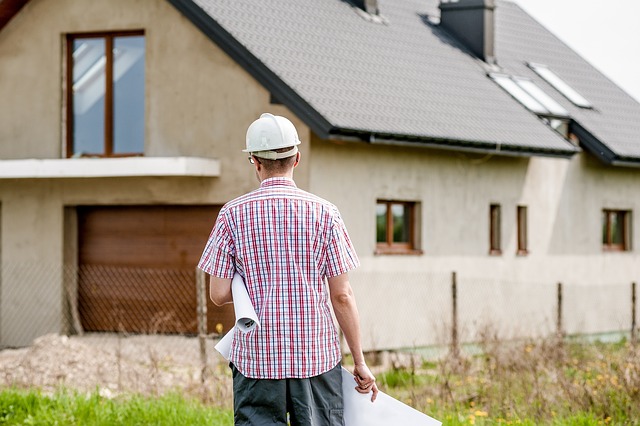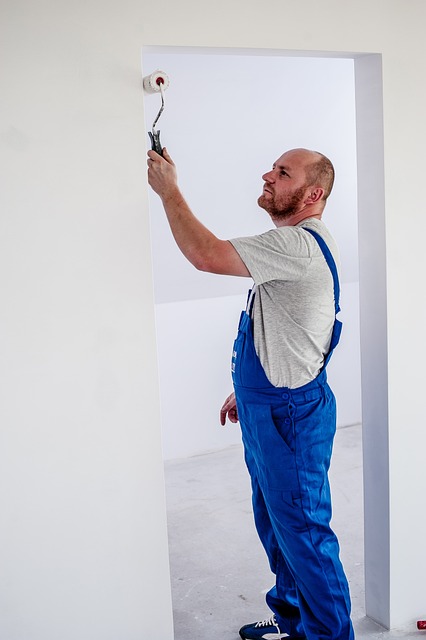Regular monitoring, prompt repairs, and proactive maintenance are essential for preventing water leaks and associated damage, which can be costly and extensive. Homeowners should inspect common leak sources like plumbing fixtures, roof shingles, and seals frequently. Early detection of issues such as discolored walls or ceilings, peeling paint, musty smells, or the sound of running water can prevent minor leaks from escalating into major problems. Employing technologies such as water leak detectors provides an early warning system to alert homeowners to potential issues.
Electrical system malfunctions are also a significant concern in home maintenance, ranging from minor inconveniences to serious safety hazards. Homeowners should be vigilant for signs like flickering lights, circuit breaker trips, electric shocks, and non-functional outlets, which may indicate underlying defects such as aging wiring or system overloads. Safety is paramount; untrained DIY attempts on electrical repairs should be avoided, especially when dealing with complex tasks. It's advisable to hire licensed electricians for these jobs to ensure compliance with local codes and prevent accidents. Regular professional inspections are crucial for maintaining the safety and efficiency of your home's electrical system.
Maintaining your HVAC system through regular check-ups, clean filters, duct inspections, and assessments can lead to energy savings, better indoor air quality, and extended system lifespan. Many issues can be resolved with simple DIY fixes, but more complex problems require professional intervention. Being attentive to signs like inconsistent temperatures, high energy usage, or poor airflow is key to timely expert assistance. A trained HVAC technician can effectively address these issues, ensuring your home's climate control remains reliable and efficient throughout the year.
Ensuring a home's structural integrity is vital for its longevity and safety. Homeowners must monitor for signs of foundation problems such as cracks, stuck doors or windows, or a bowed roofline. Addressing these issues promptly can prevent more severe damage. Depending on the extent of the issue, solutions range from minor repairs to extensive structural work. A professional assessment is crucial for an accurate diagnosis and appropriate repair plan. Regular Home Repair And Maintenance practices facilitate early detection and timely resolution of structural problems, maintaining your home as a secure and durable living space.
When it comes to maintaining a safe and comfortable living environment, understanding common home repair problems is crucial. This article delves into frequent issues homeowners face—leaks, electrical systems, HVAC malfunctions, and structural integrity concerns—providing clear solutions for each. From detecting water damage to ensuring your electrical system operates safely, and maintaining your HVAC for optimal performance, our guide on Home Repair And Maintenance will equip you with the knowledge to tackle these challenges head-on. Whether it’s through preventative measures or recognizing when professional help is needed, this comprehensive overview will keep your home in top condition.
- Identifying Leaks and Water Damage in Your Home: Causes, Detection, and Preventative Measures
- Electrical System Issues: Common Problems, Safety Precautions, and Professional Assistance Options
- The Importance of Regular HVAC Maintenance: Troubleshooting Tips and When to Call a Specialist
- Dealing with Structural Integrity Concerns: Recognizing Signs, Repair Strategies, and the Role of a Home Inspector
Identifying Leaks and Water Damage in Your Home: Causes, Detection, and Preventative Measures

Water leaks and resulting damage are prevalent issues in many homes, often leading to costly repairs if left unchecked. To effectively identify these problems, homeowners must be vigilant and understand the common causes of leaks, such as worn-out seals around fixtures, faulty plumbing, or damaged roof shingles. Signs of water intrusion can manifest in various ways: discolored walls or ceilings, peeling paint, musty odors, or the sound of running water when no sources are active. Regular inspections and maintenance can prevent minor issues from escalating. For instance, checking under sinks for moisture, inspecting the water heater for signs of corrosion, and ensuring proper drainage can mitigate risks. Employing technology like water leak detectors can also provide an early warning system, alerting homeowners to potential issues before they become major problems. By addressing leaks promptly and maintaining the home’s plumbing and sealing, homeowners can protect their property from the detrimental effects of water damage, thereby preserving its integrity and reducing long-term repair costs associated with home repair and maintenance.
Electrical System Issues: Common Problems, Safety Precautions, and Professional Assistance Options

When it comes to home repair and maintenance, electrical system issues are a common concern for homeowners. These problems can range from minor annoyances to significant risks that require immediate attention. Common electrical issues include flickering lights, circuit breaker trips, persistent electrical shocks upon touching an appliance or light switch, and outlets that no longer function properly. Identifying these issues promptly is crucial as they may indicate larger underlying problems, such as worn-out wiring or a potential overload in the system.
Safety should always be the top priority when dealing with electrical repairs. Homeowners should never attempt to fix complex electrical problems without professional assistance. Simple troubleshooting steps, like replacing a light switch or resetting a circuit breaker, can often resolve minor issues. However, for tasks that involve working with the home’s main service panel or upgrading the electrical system, it is essential to hire a licensed electrician. These professionals have the expertise and tools necessary to conduct thorough electrical inspections, ensuring that any repairs are completed safely and effectively. Professional assistance not only guarantees compliance with local codes but also helps prevent accidents that could lead to costly damages or personal injury. Regular maintenance by qualified electricians is part of responsible home repair and maintenance practices, ensuring the continued safety and functionality of your home’s electrical system.
The Importance of Regular HVAC Maintenance: Troubleshooting Tips and When to Call a Specialist

Regular HVAC maintenance is an indispensable aspect of home repair and maintenance, ensuring your heating, ventilation, and air conditioning systems operate efficiently and effectively throughout the year. A well-maintained HVAC system not only prolongs its lifespan but also contributes to energy savings and improved indoor air quality. Homeowners should implement a routine check-up schedule, typically twice a year—once before the heating season and once before cooling season begins. During these inspections, a specialist will clean or replace filters, inspect ducts for leaks, check for proper refrigerant levels, and ensure all moving parts are functioning as they should be.
Troubleshooting common HVAC issues can often be addressed with basic DIY measures. For instance, if your system is not producing adequate heat or cooling, check the thermostat settings and replace or clean the filters. If the unit is making unusual noises or not turning on at all, it could indicate a problem with the electrical components or a malfunctioning part that requires professional attention. Homeowners should be vigilant about monitoring their systems for signs of distress, such as inconsistent temperatures, increased energy bills, or poor airflow. When you encounter issues beyond your expertise or when the system fails to respond to basic troubleshooting steps, it’s time to call a specialist. A trained HVAC technician can accurately diagnose and rectify complex problems, ensuring your home’s climate control systems remain reliable and efficient all year round. Regular maintenance and prompt response to issues are key to safeguarding your home against the inconveniences and potential safety risks associated with HVAC malfunctions.
Dealing with Structural Integrity Concerns: Recognizing Signs, Repair Strategies, and the Role of a Home Inspector

When it comes to maintaining the safety and longevity of a home, structural integrity is paramount. Homeowners must be vigilant in recognizing signs that may indicate potential issues with the structural components of their property. These can include visible cracks in the foundation or walls, doors or windows that stick due to shifting, and noticeable sagging or bows in the roofline. Such symptoms are often manifestations of underlying problems like soil settlement, water damage, or foundation weaknesses, which if left unchecked, can compromise the home’s structural soundness. Addressing these concerns promptly is essential for preventing more severe damages that could necessitate costly repairs or even compromise the safety of the occupants.
Repair strategies for structural integrity concerns vary based on the root cause and extent of damage. In many cases, minor cracks can be resolved with epoxy injections or hydraulic cement applications. More substantial issues, however, might require underpinning, piering, or even complete foundation replacement. The process typically begins with a thorough inspection by a qualified home inspector or a structural engineer who can pinpoint the exact cause of the structural concerns and recommend appropriate repair methods. Their expertise is invaluable, as they can also advise on preventative measures to avoid future complications. Home Repair And Maintenance practices are crucial for detecting and addressing these issues early, thus minimizing potential harm and ensuring the home remains a safe and stable environment for years to come.
Homeowners can safeguard their investment by staying informed about common home repair issues and proactive solutions. This article has delved into the critical areas of identifying leaks, addressing electrical system malfunctions, maintaining HVAC systems, and assessing structural integrity concerns. By understanding the causes, detection methods, and preventative measures for water damage, recognizing safety precautions related to electrical problems, prioritizing regular HVAC maintenance, and knowing when to enlist a professional home inspector or specialist, homeowners can effectively manage and resolve these issues. Regular upkeep through home repair and maintenance practices not only extends the lifespan of a dwelling but also enhances safety and comfort for its inhabitants. With this knowledge at hand, you’re now equipped to tackle home repairs confidently, ensuring your living space remains a reliable and healthy environment.
